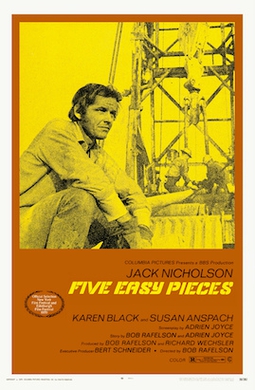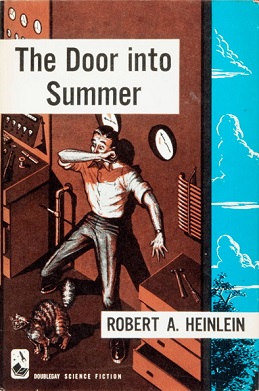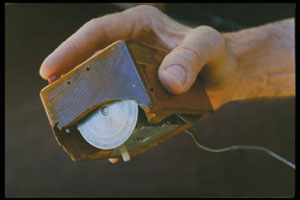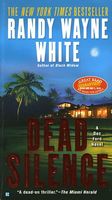 As a bookaholic from my early childhood, I can assure you that I have read my way through shelves, yards, perhaps miles of books. (That is not a complaint.) And I have no problem with that. I've also gorged on music, movies, television shows, and every other entertainment that is made available to me. Some of this is because I'm greedy, and some of this is because reading is so much easier than writing:
As a bookaholic from my early childhood, I can assure you that I have read my way through shelves, yards, perhaps miles of books. (That is not a complaint.) And I have no problem with that. I've also gorged on music, movies, television shows, and every other entertainment that is made available to me. Some of this is because I'm greedy, and some of this is because reading is so much easier than writing:"Will you be writing a novel?" "If denied every other form of physical gratification." - Pursewarden, in Balthazar by Lawrence DurrellGood old Lineaments of Desire. Seriously, if you've never read The Alexandria Quartet, check it out. It rivals Roshomon as far as technique, complications, and amazing reveals. And it definitely has atmosphere. I'm not sure that Durrell's Alexandria still exists, but I'd love to see if it does.
BTW, Alexandria, Egypt is also the hometown of the poet C. P. Cavafy. He's best known for Ithaka, and Waiting for the Barbarians. (The latter has spawned eponymous novels, songs, paintings, an opera, and an upcoming movie. Seriously good. And timely.) My personal favorite Cavafy poem is The God Abandons Antony:
When suddenly, at midnight, you hearAnyway, along the line I have noticed that my tastes have changed. Thank God. For one thing, when I get totally bored by a novel, or it's really, really bad, instead of plowing through I quit reading it. (With non-fiction, I apply my grad school skills and gut the boring ones because knowledge / information doesn't always come in a nice candy coating.) Even when I was reading novels for the Edgars, there were two books that I just gave up on. One I called "Fifty Shades of Green" because all the sex took place out in the wilderness. (Presumably a statement of some kind, but I started laughing about page 15 - for all the wrong reasons - and didn't stop until I tossed it onto the pile and reached for the next book.) And another book that was absolute torture porn. The first 10 pages gave me nightmares, so I stopped.
an invisible procession going by
with exquisite music, voices,
don’t mourn your luck that’s failing now,
work gone wrong, your plans
all proving deceptive—don’t mourn them uselessly.
As one long prepared, and graced with courage,
say goodbye to her, the Alexandria that is leaving.
Above all, don’t fool yourself, don’t say
it was a dream, your ears deceived you:
don’t degrade yourself with empty hopes like these.
As one long prepared, and graced with courage,
as is right for you who proved worthy of this kind of city,
go firmly to the window
and listen with deep emotion, but not
with the whining, the pleas of a coward;
listen—your final delectation—to the voices,
to the exquisite music of that strange procession,
and say goodbye to her, to the Alexandria you are losing.
 This is not to say that there's no place for trash. I still think that an evening of Plan 9 From Outer Space can be very fulfilling, as well as almost any Joan Crawford movie. And if you've got Bette Davis fighting with Mary Astor or Miriam Hopkins, I'm front row seating.
This is not to say that there's no place for trash. I still think that an evening of Plan 9 From Outer Space can be very fulfilling, as well as almost any Joan Crawford movie. And if you've got Bette Davis fighting with Mary Astor or Miriam Hopkins, I'm front row seating.And there are some things that are like a train wreck. You just can't take your eyes off of them: Ancient Aliens. Immanuel Velikovsky's Worlds in Collision (did you know that Venus is actually a comet? Ha!). Pink Flamingos. Richard Wallace's Jack the Ripper, Light Hearted Friend (did you know that Lewis Carroll was actually Jack the Ripper? Ha!)
And I would not have survived grad school without a stack of really cheesy romance novels for mental popcorn.
A couple of summers back I went through a fit of nostalgia and re-read a bunch of books from my tween/teen years. Some held up. Marjorie Morningstar is pretty damn good; so are The Once and Future King (which I still know almost by heart), Ship of Fools, The Spy Who Came In from the Cold, etc.
But a lot didn't hold up, mostly the books I'd read for the sex, like Frank Yerby novels, because, in the 60s, it was him, Harold Robbins, or Ian Fleming for an educational experience. (Harlequin romances barely went beyond a kiss in those days.) Besides, my mother read Yerby, my father read Fleming, and I simply snuck off with their copies when they weren't looking. (Even as a teenager I couldn't stand Harold Robbins.)
 BTW, teenaged Eve was so glad to find Robert Heinlein. Tunnel in the Sky, Have Spacesuit, Will Travel, Stranger in a Strange Land, The Moon is a Harsh Mistress, and many more. It was my first exposure to strong, intelligent women, and got me ready for Emma Peel.
BTW, teenaged Eve was so glad to find Robert Heinlein. Tunnel in the Sky, Have Spacesuit, Will Travel, Stranger in a Strange Land, The Moon is a Harsh Mistress, and many more. It was my first exposure to strong, intelligent women, and got me ready for Emma Peel.My two favorite Heinlein quotes are both from The Moon is a Harsh Mistress:
TANSTAAFL and "Is no rape on Luna. Men won't permit."
And not, I might add, by curtailing women's freedom to dress, work, walk, jog, speak, behave, and live any way she damn well pleased.
Still, be careful giving in to nostalgia: sometimes it bites.
Back when Netflix first came out I watched a bunch of 1960s movies that I loved when I first saw them, and while there were a lot of great, great, great movies made back then, there were also some that made my jaw drop. I liked this crap?
Billy Jack: I'm embarrassed to say how much I enjoyed it back in 1971, even though even then I knew that the dialog was really bad. And that they'd all have ended up shot to death in real life. I mean, this is after Kent State, folks. Idealism was long gone.
And Blow Up turned out to be a big wad of nothing. I still think it's main reason for success was that it was the first time that a major actress - Vanessa Redgrave - showed her bare breasts on screen. But then, I've found I can't stand any of Antonioni's films. If I'm going to do slow-burning moody atmospherics, give me Peter Weir's Picnic at Hanging Rock any day, or Andrei Tarkovsky's Solaris or Andrei Rublev.
 Five Easy Pieces. Jack Nicholson in youthful full form. I loved the scene with him playing the piano on the back of a pick-up truck, and the restaurant, searching for toast, both then and now. But you know something? The rest of the movie sucked swamp water. The women were all basically sexual fungibles, with no intelligence or purpose other than to cling to a man like a limpet. And Nicholson's character was about as much fun as a razor blade. In fact, Bobby Dupea was the exact [male] embodiment of the description Jack Nicholson's character gives of Michelle Pfeiffer's character in Wolf twenty-four years later:
Five Easy Pieces. Jack Nicholson in youthful full form. I loved the scene with him playing the piano on the back of a pick-up truck, and the restaurant, searching for toast, both then and now. But you know something? The rest of the movie sucked swamp water. The women were all basically sexual fungibles, with no intelligence or purpose other than to cling to a man like a limpet. And Nicholson's character was about as much fun as a razor blade. In fact, Bobby Dupea was the exact [male] embodiment of the description Jack Nicholson's character gives of Michelle Pfeiffer's character in Wolf twenty-four years later:
 But back to books. I reread a couple of Yerby novels, and, while I still can't help but like The Devil's Laughter (we all have our guilty pleasures), I nominate An Odor of Sanctity as one of the Top Ten Worst Books of all time. Set in the time of the Crusader Kingdoms of Outremer, every single scrap of dialog is thees and thous, until certes, when I didst reach XXIV, I didst no longer giveth the rear end of a yon black rat. Not only that, but the hero, the girlishly fair but apparently extremely well-endowed Alaric, like James Bond, suffers from the Dick of Death: he can't keep it in his pants, any woman he marries dies, and half the women he has sex with die as well. And plot? What plot? From Goodreads, Jackson Burnett writes:
But back to books. I reread a couple of Yerby novels, and, while I still can't help but like The Devil's Laughter (we all have our guilty pleasures), I nominate An Odor of Sanctity as one of the Top Ten Worst Books of all time. Set in the time of the Crusader Kingdoms of Outremer, every single scrap of dialog is thees and thous, until certes, when I didst reach XXIV, I didst no longer giveth the rear end of a yon black rat. Not only that, but the hero, the girlishly fair but apparently extremely well-endowed Alaric, like James Bond, suffers from the Dick of Death: he can't keep it in his pants, any woman he marries dies, and half the women he has sex with die as well. And plot? What plot? From Goodreads, Jackson Burnett writes:
Back when Netflix first came out I watched a bunch of 1960s movies that I loved when I first saw them, and while there were a lot of great, great, great movies made back then, there were also some that made my jaw drop. I liked this crap?
Billy Jack: I'm embarrassed to say how much I enjoyed it back in 1971, even though even then I knew that the dialog was really bad. And that they'd all have ended up shot to death in real life. I mean, this is after Kent State, folks. Idealism was long gone.
And Blow Up turned out to be a big wad of nothing. I still think it's main reason for success was that it was the first time that a major actress - Vanessa Redgrave - showed her bare breasts on screen. But then, I've found I can't stand any of Antonioni's films. If I'm going to do slow-burning moody atmospherics, give me Peter Weir's Picnic at Hanging Rock any day, or Andrei Tarkovsky's Solaris or Andrei Rublev.
 Five Easy Pieces. Jack Nicholson in youthful full form. I loved the scene with him playing the piano on the back of a pick-up truck, and the restaurant, searching for toast, both then and now. But you know something? The rest of the movie sucked swamp water. The women were all basically sexual fungibles, with no intelligence or purpose other than to cling to a man like a limpet. And Nicholson's character was about as much fun as a razor blade. In fact, Bobby Dupea was the exact [male] embodiment of the description Jack Nicholson's character gives of Michelle Pfeiffer's character in Wolf twenty-four years later:
Five Easy Pieces. Jack Nicholson in youthful full form. I loved the scene with him playing the piano on the back of a pick-up truck, and the restaurant, searching for toast, both then and now. But you know something? The rest of the movie sucked swamp water. The women were all basically sexual fungibles, with no intelligence or purpose other than to cling to a man like a limpet. And Nicholson's character was about as much fun as a razor blade. In fact, Bobby Dupea was the exact [male] embodiment of the description Jack Nicholson's character gives of Michelle Pfeiffer's character in Wolf twenty-four years later:"You know, I think I understand what you're like now. You're very beautiful and you think men are only interested in you because you're beautiful, but you want them to be interested in you because you're you. The problem is, aside from all that beauty, you're not very interesting. You're rude, you're hostile, you're sullen, you're withdrawn. I know you want someone to look past all that at the real person underneath but the only reason anyone would bother to look past all that is because you're beautiful. Ironic, isn't it? In an odd way you're your own problem."(There's a lot of it about.)
 But back to books. I reread a couple of Yerby novels, and, while I still can't help but like The Devil's Laughter (we all have our guilty pleasures), I nominate An Odor of Sanctity as one of the Top Ten Worst Books of all time. Set in the time of the Crusader Kingdoms of Outremer, every single scrap of dialog is thees and thous, until certes, when I didst reach XXIV, I didst no longer giveth the rear end of a yon black rat. Not only that, but the hero, the girlishly fair but apparently extremely well-endowed Alaric, like James Bond, suffers from the Dick of Death: he can't keep it in his pants, any woman he marries dies, and half the women he has sex with die as well. And plot? What plot? From Goodreads, Jackson Burnett writes:
But back to books. I reread a couple of Yerby novels, and, while I still can't help but like The Devil's Laughter (we all have our guilty pleasures), I nominate An Odor of Sanctity as one of the Top Ten Worst Books of all time. Set in the time of the Crusader Kingdoms of Outremer, every single scrap of dialog is thees and thous, until certes, when I didst reach XXIV, I didst no longer giveth the rear end of a yon black rat. Not only that, but the hero, the girlishly fair but apparently extremely well-endowed Alaric, like James Bond, suffers from the Dick of Death: he can't keep it in his pants, any woman he marries dies, and half the women he has sex with die as well. And plot? What plot? From Goodreads, Jackson Burnett writes:"At one point, Alaric gets on his horse to ride to Cordoba to rescue his one-of-many true loves. Along the way, his horse stops, refuses to go forward, and turns to take Alaric off on a side story to fix an unresolved plot problem. When the hero's horse makes the calls on a novel's narrative arc, you know you are in trouble."But I will give it credit: it's still [marginally] better than:
- The Playboy Sheikh's Virgin Stable-Girl - no, I haven't read it, but, thanks to Smart Bitches/Trashy Books, I don't have to, and you don't either - what a hilarious review!
- The Lair of the White Worm - author, Bram Stoker. BTW, Ken Russell made a movie of it in 1988 starring Hugh Grant. I wonder if he's managed to buy up all the prints of it yet?
- The entire Left Behind series.
- Anything by Ayn Rand.




